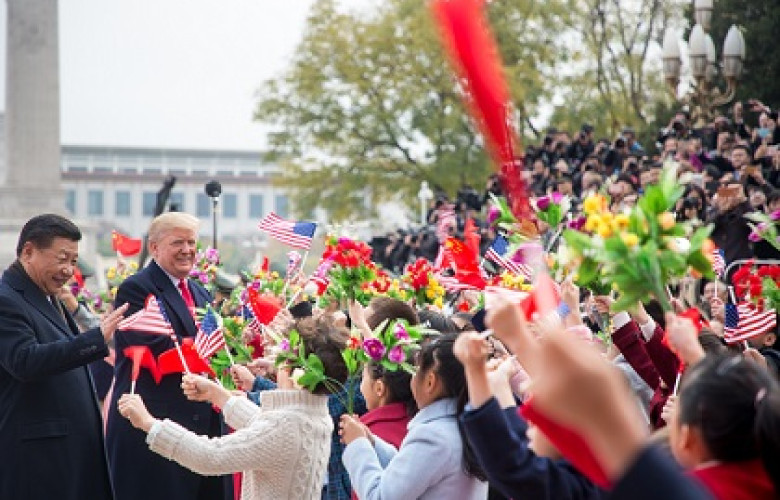Don’t expect Trump 2.0 to be so tough on China
Ben Scott, Australian National University's National Security College
2024-07-24
AMERICA
DEFENCE AND SECURITY
This article first appeared on The Interpreter, published by the Lowy Institute

No one should have been surprised by Donald Trump’s latest expression of reluctance to defend Taiwan. But many were, including those with skin in the game. Shares in Taiwan Semiconductor Manufacturing Company and related tech companies plunged after Trump said Taiwan should be paying for the United States to defend it, “doesn’t give us anything”, and had taken “almost 100%” of the US semiconductor industry.
Attempts to forecast a future Trump administration’s China policy by scrutinising the views of his appointments – like his running mate JD Vance – or aspirational policy programs such as Project 2025 or the RNC platform, won’t yield much. As president, Trump ignored or sacked his appointees over and again. Attempts to turn Trumpism into a coherent project have failed before more than once.
Trump’s previous behaviour is the best guide to his future conduct. But the Trump presidency is frequently mis-remembered, perhaps because it was so chaotic or simply because many would rather forget.
It’s true that the Trump administration was frequently hostile to China. The 2017 National Security Strategy (NSS) heralded Washington’s bipartisan embrace of strategic competition with China. And many will remember an embattled Trump at the end of his presidency, angrily lashing out at Beijing for causing the “China virus” as he called Covid-19. But efforts to retrospectively manufacture a coherent counter-China Trump doctrine are not persuasive.
Trump himself never demonstrated any commitment to countering Chinese aggression in the Indo-Pacific. He was at best ambivalent about competing with China on critical and emerging technology. The NSS gave China hawks licence to pursue their preferred policies, including increased military spending, but for Trump the new focus on China was attractive because it diverted attention from Russia and distinguished him from his predecessors. He probably never read the NSS and there is no evidence that he was guided by it.
When Trump involved himself in China policy it was mostly in pursuit of a bilateral US-China trade deal or to boost his “perfect relationship” with Xi Jinping. Trump’s continual praise for Xi was interrupted only by Covid-19. In the wake of the pandemic, he’s resumed lauding Xi as “smart, brilliant, everything perfect”.
Trump is consistently enthusiastic about strongmen rulers –Xi, Vladimir Putin or Kim Jong-un – with whom he is confident that he can cut deals. According to former national security advisor John Bolton, Trump used a 2018 dinner with Xi in Buenos Aires to seek support for his re-election. Although Bolton was barred by government restrictions from quoting Trump’s exact words, he describes Trump as “alluding to China’s economic capability to affect the ongoing campaigns, pleading with Xi to ensure he’d win”. Bolton brings axes to grind to such debates but this description hasn’t been credibly contested.
The Trump administration imposed a series of restrictions on Chinese telco Huawei but Trump himself flip flopped on technological competition with China. In 2018, he proposed to intervene in the prosecution of Huawei’s Chief Financial Officer Meng Wanzhou for sanctions violations if it would help close a trade deal with China. Trump also tweeted that he and Xi were working to end the ban on Chinese telco ZTE, which was facing bankruptcy because of its violations of US sanctions. In 2020, Trump issued an executive order purporting to ban TikTok, but he has more recently opposed any such ban.
Trump is highly unlikely to knowingly enter a military conflict with China unless he sees it as necessary to protect the continental United States or his own reputation. Trump backed bigger military budgets, but he was typically leery of military action. He now proudly boasts that no wars began in his presidency. In 2019 he changed his mind about retaliatory strikes on Iran for its downing of a US Global Hawk drone, hours after approving them, because they were “not proportionate”. Bolton describes Trump as “particularly dyspeptic about Taiwan … one of Trump’s favourite comparisons was to point to the tip of one of his Sharpies and say, “This is Taiwan”, then point to the Resolute desk and say “This is China”. Trump reluctantly agreed to a 2019 $8 billion sale of F-16s to Taiwan but urged Bolton to “do it quietly”.
That’s not to say that Trump 2.0 couldn’t blunder into a war. His impulsive threat of “fire and fury” directed at Pyongyang increased the risk of conflict on the Korean peninsula. His decision to kill Qassem Soleimani, leader of Iran’s Islamic Revolutionary Guards’ Quds Force, surprised his own advisers and was reportedly uninformed by any methodical analysis of the consequences.
Most of America’s allies and partners want the United States to constrain and counter China’s power but without bifurcating the global economy or provoking a catastrophic conflict. Maintaining this “goldilocks” balance would be a daunting challenge for a sophisticated US administration staffed with experienced experts.
Trump is promising to impose massive tariffs on China, but his main goal is probably still a “better” bilateral trade deal. It’s far from clear that this would address concerns about Chinese technology. It’s even less likely that Trump would ever authorise military force to counter Chinese aggression in the Indo-Pacific, whether in the East or South China Seas or against Taiwan.
Membership
NZIIA membership is open to anyone interested in understanding the importance of global affairs to the political and economic well-being of New Zealand.